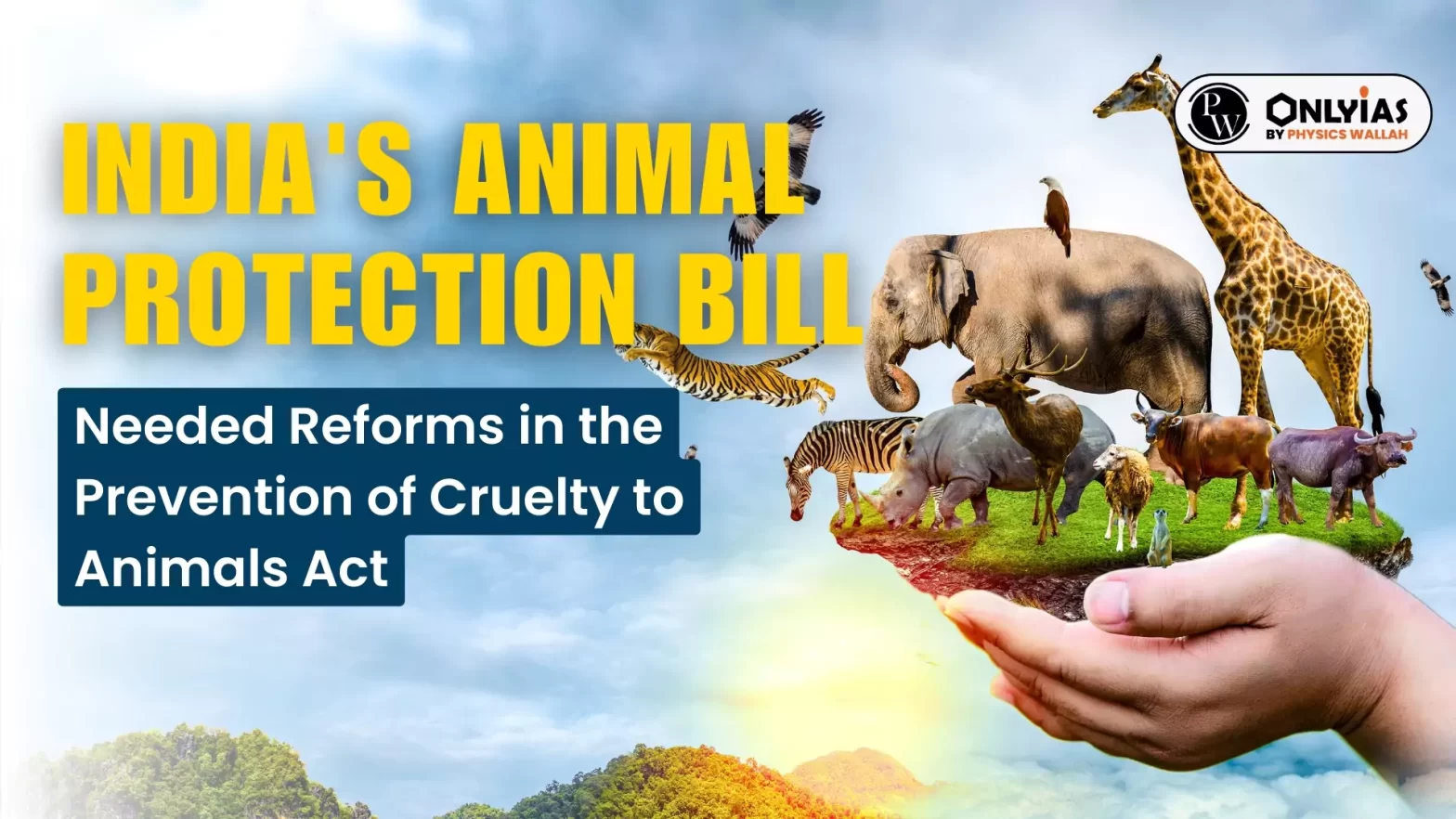Context
Recently, Croatia has imposed stricter penalties for acts of cruelty, especially the abandonment of domestic pets.
| Relevance For Prelims: Animal Husbandry, Draft Prevention of Cruelty to Animal (Amendment) Bill 2022, Prevention of Cruelty to Animals (PCA) Act (1960), Department of Animal Husbandry.
Relevance For Mains: Legislations to protect animal Cruelty in India |
Prevention of Cruelty to Animals Act 1960
- Inadequacies in the Prevention of Cruelty to Animals Act 1960: The Prevention of Cruelty to Animals Act (PCA Act) is the primary legislation criminalizing various forms of cruelty towards animals in India.
- Failure to Achieve Objectives: Poor enforcement of this law and the meager penalties it prescribes are often cited as reasons for its failure to achieve its main objective of preventing cruelty to animals.
Enroll now for UPSC Online Course
Punishment Theories
- Retribution: Punishment imposed to avenge the crime committed.
- Deterrence: It aims to prevent future crimes by imposing punishment that dissuades both the perpetrator and the general public from engaging in similar behavior.
- Reformation or Rehabilitation: It focuses on reforming the behavior of the perpetrator to prevent future offenses.
Issues in Prevention of Cruelty to Animals Act 1960
- Bail and Non-Cognisable Offenses: Many offenses under the PCA Act are bailable and non-cognisable, allowing accused individuals to seek bail easily and preventing immediate police action without court permission. This delays justice and hampers effective enforcement.
- Inadequate Fines: The fines prescribed under the PCA Act have remained unchanged since 1890, rendering them insignificant and failing to act as a deterrent against animal cruelty. In many cases, fines are as low as ₹10, which does not reflect the seriousness of the offenses.
- Discretionary Sentencing: The law grants courts discretion to choose between imposing imprisonment or a fine on offenders, even for severe cases of animal cruelty.
- This leniency allows perpetrators to evade appropriate punishment, undermining the deterrent effect of the law.
- Lack of Rehabilitation Measures: The PCA Act lacks provisions for alternative forms of punishment such as community service, which could help reform perpetrators and address the root causes of animal cruelty.
Steps taken by Government
- Draft Prevention of Cruelty to Animal (Amendment) Bill 2022: In November 2022, the Draft PCA (Amendment) Bill, 2022 was published by the Department of Animal Husbandry and Dairying for public comments. Despite widespread public support for the Draft Bill, it was not tabled in Parliament.
- Proposed Amendments in PCA (Amendment) Bill, 2022: The Draft Bill includes significant amendments to the 1960 Act such as the inclusion of the five fundamental freedoms for animals, enhancement of the punishments and the amounts of money to be paid as fines for various offenses, and addition of new cognisable offenses.
Way Forward
- Legislative Reforms: It is important, however, to recognise that even with its limitations, the enactment of the Draft Bill could be a huge step forward for animal law in India.
- Arundale’s Push for Animal Welfare Law: In 1954, while moving a Private Member’s Bill to replace the archaic Prevention of Cruelty to Animals Act (1890), its proponent Rukmini Devi Arundale had said in Parliament, “India must set a great example to all countries in the world.
Enroll now for UPSC Online Classes
Conclusion
When the new government comes to power in June this year, it should accept this responsibility so that the amendments to the Prevention of Cruelty to Animals Act (1960) will finally see the light of day.
Also Read: Rules For Transfer Of ‘Captive Elephants’
![]() 2 May 2024
2 May 2024

